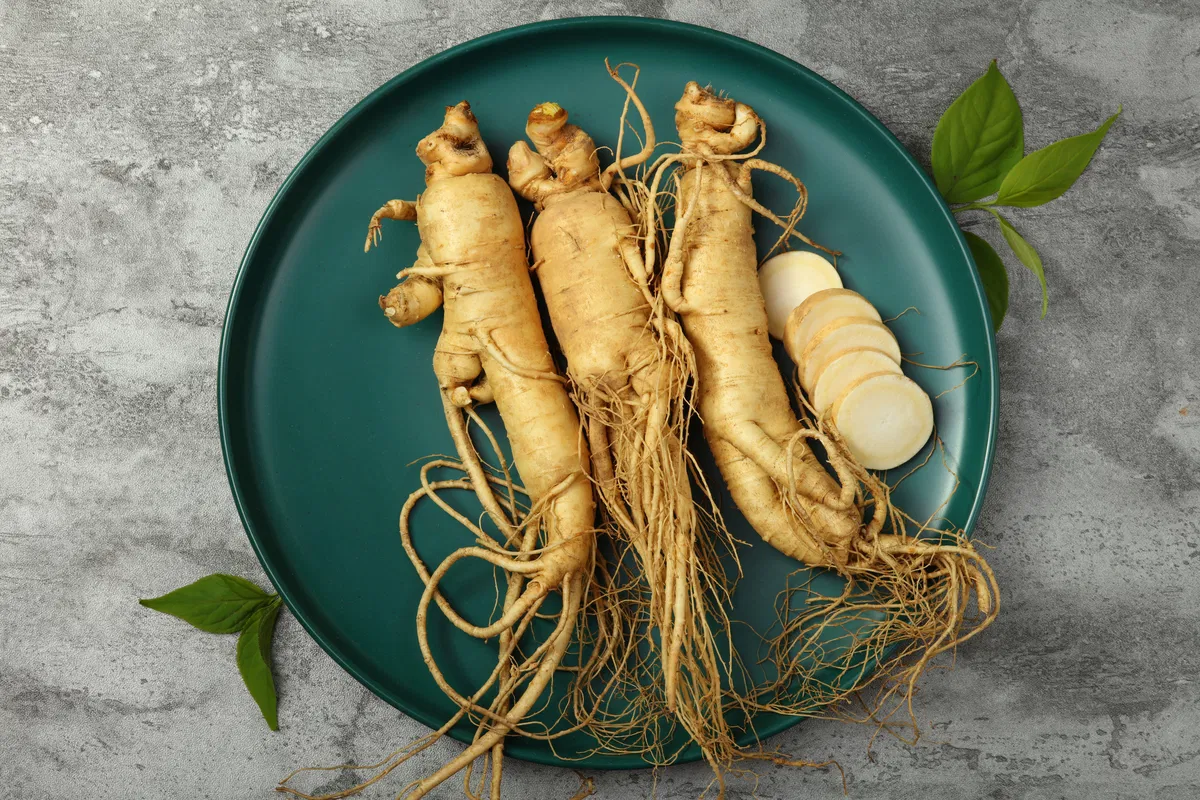- 0086-571-85302990
- sales@greenskybio.com
Southern Ginseng: A Timeless Herb for Modern Wellness
2025-06-24

Southern ginseng (Gynostemma pentaphyllum), commonly known as jiaogulan or the “herb of immortality,” has deep roots in Traditional Chinese Medicine. This remarkable climbing vine from the mountainous regions of southern China is celebrated for its extensive health benefits. While it became a focal point for modern scientific study in the 1970s due to its unique saponin compounds, its use dates back to the Ming Dynasty, documented in the “Compendium of Materia Medica” by Li Shizhen.
Southern ginseng is a nutrient powerhouse, packed with gypenosides, flavonoids, phenolic compounds, amino acids, and vital minerals like selenium, zinc, and iron. These compounds confer the herb’s renowned health-promoting properties, including cardiovascular support, antioxidant and anti-inflammatory effects, immune system enhancement, stress reduction, and potential anti-aging benefits. These attributes make southern ginseng a valuable part of any wellness regime.
Traditionally, southern ginseng has been used to address conditions such as fatigue, stress, and high blood pressure. Consumed typically as a tea by steeping dried leaves in hot water, southern ginseng enjoys a revered status, even credited in certain Chinese communities with contributing to longevity. Anecdotal evidence from a village known for its centenarian population suggests that regular consumption of southern ginseng tea may promote life extension.
The herb’s mild, slightly sweet taste allows for versatile culinary applications. It can be incorporated into green smoothies, iced teas, energy balls, chicken soups, and infused honey. This versatility makes it easy to enjoy the flavor and vast health benefits of southern ginseng.
Historical Background:
Originating from the rich traditions of Chinese herbal medicine, southern ginseng was first noted for its medicinal applications in the “Compendium of Materia Medica.” Its rediscovery by modern science came in the 20th century, when researchers identified its saponin compounds akin to those in Panax ginseng, reviving interest in its therapeutic potential. The mountainous southern regions of China provide ideal conditions for cultivating this herb, encompassing the right balance of climate, soil, and altitude.
Phytonutrient Profile and Health Benefits:
Southern ginseng’s array of phytonutrients makes it exceptionally beneficial:
- Gypenosides: Structurally similar to ginsenosides, these compounds are central to the herb’s efficacy.
- Flavonoids and Phenolic Compounds: These antioxidants protect against oxidative stress and inflammation.
- Amino Acids and Trace Minerals: Essential for various bodily functions, these nutrients contribute to overall health.
Key benefits of southern ginseng include:
- Cardiovascular Health: Helps lower blood pressure and cholesterol, mitigating heart disease risk.
- Antioxidant and Anti-inflammatory Properties: Protects cells from damage and reduces inflammation.
- Immune Support: Bolsters the immune system’s resilience against infections and diseases.
- Stress Reduction: As an adaptogen, it aids the body in managing stress, lowering cortisol, and promoting relaxation.
- Anti-aging Effects: Antioxidants in southern ginseng may decelerate aging by protecting cellular integrity.
Traditional and Culinary Uses:
In Traditional Chinese Medicine, southern ginseng is a preferred remedy for various ailments. Its use extends into modern culinary practices:
- Southern Ginseng Green Smoothie: Mix greens, banana, jiaogulan powder, and almond milk for a revitalizing drink.
- Iced Tea and Energy Balls: Refresh with iced tea and energize with healthy snacks made from jiaogulan powder mixed with dates, nuts, and seeds.
- Chicken Soup and Infused Honey: Enhances flavor and nutrition in soups and provides a sweet, medicinal spread for various dishes.
With its rich historical background and proven health benefits, southern ginseng stands out as a powerful addition to modern wellness practices. Whether consumed in traditional teas, supplements, or incorporated into everyday recipes, this herb offers a natural path to improved cardiovascular health, immune enhancement, and overall well-being.
- ▶ Hesperidin
- ▶ Citrus Bioflavonoids
- ▶ Plant Extract
- ▶ lycopene
- ▶ Diosmin
- ▶ Grape seed extract
- ▶ Sea buckthorn Juice Powder
- ▶ Fruit Juice Powder
- ▶ Hops Extract
- ▶ Artichoke Extract
- ▶ Mushroom extract
- ▶ Astaxanthin
- ▶ Green Tea Extract
- ▶ Curcumin
- ▶ Horse Chestnut Extract
- ▶ Other Product
- ▶ Boswellia Serrata Extract
- ▶ Resveratrol
- ▶ Marigold Extract
- ▶ Grape Leaf Extract
- ▶ New Product
- ▶ Aminolevulinic acid
- ▶ Cranberry Extract
- ▶ Red Yeast Rice
- ▶ Red Wine Extract
-
Nettle Root Extract
2025-06-24
-
American Ginseng Root Extract
2025-06-24
-
Camu Camu Extract
2025-06-24
-
White Peony Extract
2025-06-24
-
Tongkat Ali Extract
2025-06-24
-
Coconut Water Powder
2025-06-24
-
Gynostemma pentaphyllum extract
2025-06-24
-
Angelica sinensis extract
2025-06-24
-
Yam Extract
2025-06-24
-
Acai Berry Extract
2025-06-24





















